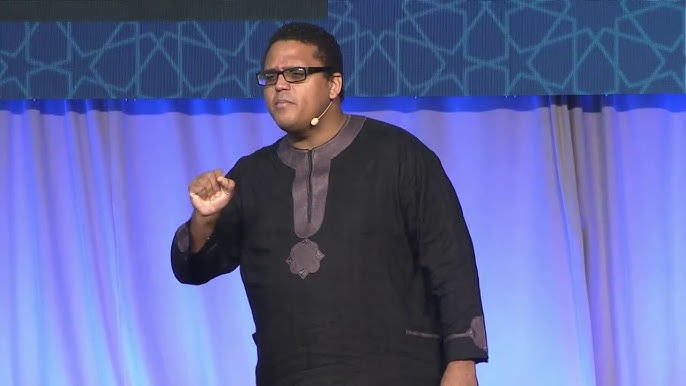For decades, Nigeria’s agricultural backbone has rested on the shoulders of smallholder farmers, who produce more than 70 percent of the country’s food supply. Yet, despite their importance, many remain trapped in cycles of poverty, burdened by low yields, lack of credit, and limited access to markets. Into this void stepped Kola Masha, a social entrepreneur determined to rewrite the rules of agriculture through technology, data, and innovation.
From Harvard to the Fields of Nigeria
Kola Masha, founder of Babban Gona, did not begin his career in a village but in the global corridors of engineering and finance. With degrees from MIT and Harvard, and experience in leadership roles at General Electric and Notore, he seemed destined for corporate boardrooms. Instead, he turned his focus to rural Nigeria, founding Babban Gona in 2012 to address the country’s most persistent challenge: how to make farming profitable for millions of smallholders.
His motivation was clear: until agriculture worked for the people who grew Nigeria’s food, economic growth would remain fragile, and food insecurity would persist.
Cracking the Code of Smallholder Farming
At the heart of Babban Gona’s model lies a simple but powerful principle—trust and scale through structure. The company organizes farmers into small cooperatives called Trust Groups, where peer accountability ensures access to credit without the high risk of defaults that has crippled traditional lending to farmers.
By blending this structure with technology, Babban Gona has created a system that provides inputs, training, and access to markets. Farmers not only grow more but also sell smarter, with guaranteed buyers and better prices.
The results speak volumes. Member farmers often record yields nearly double the national average, creating ripple effects in rural economies where poverty reduction has always seemed out of reach.
Unlike traditional cooperatives, Babban Gona is powered by data and artificial intelligence. Farmers receive AI-driven agronomic advice via mobile platforms, guiding them on planting, pest control, and harvest timing. Data analytics also fuel Babban Gona’s credit scoring systems, ensuring that financial risk is minimized even as thousands of farmers are onboarded.
This tech-driven backbone makes Babban Gona less a farming collective and more a digitally enabled franchise model. Top-performing farmers become leaders who run micro-franchises, distributing inputs and training to their peers. The model not only scales efficiently but also builds local ownership, reducing dependence on external managers.
Recognition Beyond Nigeria
Babban Gona’s innovative approach has not gone unnoticed. In 2017, it became the first African company to win the Skoll Award for Social Entrepreneurship, cementing its place among global pioneers of impact-driven business.
The recognition has also attracted significant international investment. Recently, British International Investment (BII) committed ₦11.4bn in debt funding to help Babban Gona expand to 140,000 farmers by 2029. For BII, the move is both a financial bet and a social intervention—proof that agriculture can deliver impact and returns when coupled with smart technology.
Challenges in the Fields
Still, the journey is far from smooth. Nigeria’s rural infrastructure remains a stumbling block: poor roads, unreliable electricity, and weak internet coverage challenge even the most sophisticated agri-tech models. Climate change adds further risks, from erratic rainfall to crop diseases, threatening the fragile gains made by smallholders.
Moreover, the reliance on foreign financing raises questions about sustainability. While international capital has helped scale Babban Gona, critics argue that Nigeria’s private sector and policymakers should do more to invest in local solutions rather than wait for foreign validation.
Why It Matters for Africa’s Digital Economy
Kola Masha’s work underscores a critical but often overlooked truth: Africa’s digital economy cannot be built on fintech apps and social media platforms alone. Food security is the continent’s most urgent digital challenge. By embedding technology into the soil, Babban Gona is proving that data, AI, and structured finance can transform agriculture from subsistence to enterprise.
For Nigeria, where youth unemployment remains high, the model also offers a pathway to rebrand agriculture as a viable and modern career. If farming is made profitable and tech-driven, young Nigerians may see tractors and tablets as tools of the same trade.
Kola Masha’s vision is ambitious: to scale Babban Gona to millions of farmers across Nigeria and eventually Africa. Whether this dream materializes depends on more than just technology—it requires stronger infrastructure, supportive government policies, and a cultural shift that values agriculture as much as oil or fintech.
Yet, the seeds of transformation have been planted. Babban Gona is no longer just a farming cooperative; it is a blueprint for how technology can drive inclusive growth in Africa.
As Nigeria faces mounting food security challenges, the question is no longer whether Kola Masha’s model works—it is whether the nation and the continent will rally behind it. Because in a digital economy, the revolution may not begin in shiny tech hubs but in the fields where Africa’s future is being sown.
Talking Points
AI-powered farming sounds revolutionary, but what happens when rural Nigeria still lacks reliable electricity and internet? Without fixing the basics—roads, power, connectivity—technology risks becoming an elite showcase rather than a farmer’s daily tool.
Let’s be blunt: many young Nigerians see farming as backward. Yet Babban Gona is proving it can be as modern as coding or crypto. If the government and private sector don’t ride this momentum, Nigeria risks losing a generation of youth to “imported dreams” while its food system collapses.
Think about it: 30 million smallholder farmers in Nigeria alone. If they’re empowered with tech and finance, that’s the largest distributed workforce Africa has. Ignoring them is not just bad economics—it’s digital malpractice.





